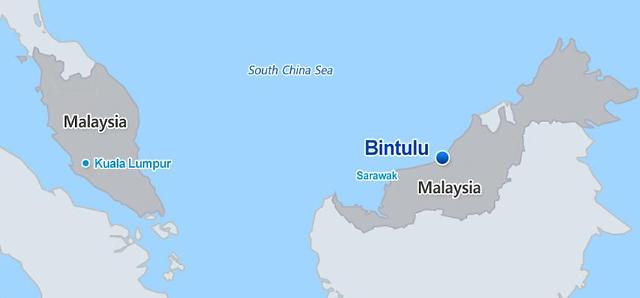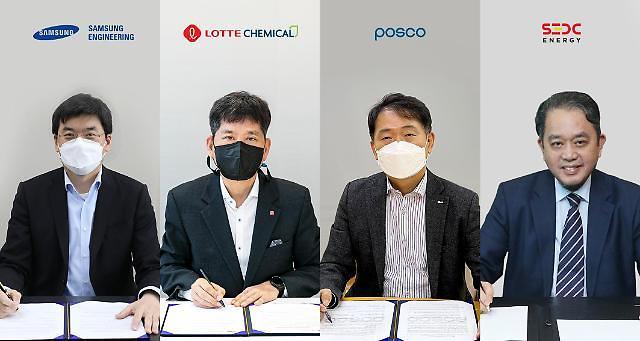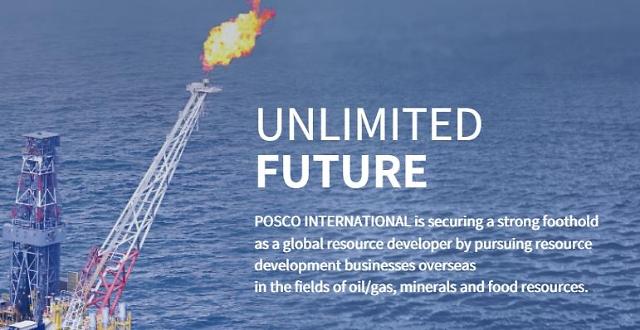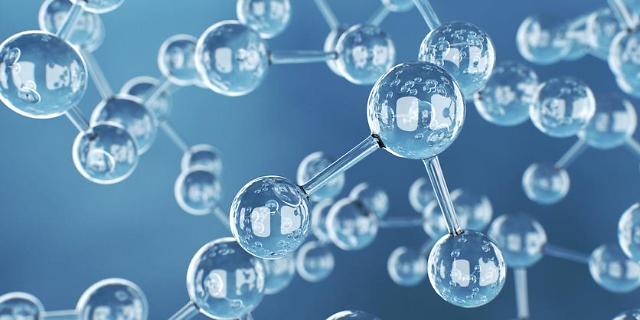
[Courtesy of Samsung Engineering]
SEOUL -- Samsung Engineering, a construction and project management company in South Korea, has clinched a $680 million contract from a subsidiary of Britain's oil and gas company Shell for its onshore gas plant in Bintulu, a coastal town in the Malaysian state of Sarawak.
Shell's subsidiary, Sarawak Shell Berhad (SSB), carries out the exploration and production of oil and gas on land and at sea. Commercial production at the Marjoram-Rosmari gas development project is to begin in 2025.
The onshore gas plant (OGP) will be capable of processing up to 800 million cubic feet of gas per day, Samsung Engineering said, adding that it would execute the project on an engineering, procurement, construction and commissioning (EPCC) basis.
Samsung Engeering said it was able to win the contract as a successful bidder from the dual Front End Engineering and Design (FEED). "Track record, regional expertise as well as sustainable investment in Sarawak, combined with our strategy to participate from FEED stage and roll over to execute a total solution in EPCC, proved to be the right strategy," CEO Choi Sung-an said in a statement on July 13.
Samsung Engineering said it would seek to participate in additional FEED as well as EPC projects in Malaysia. The company has a proven track record in executing gas projects in Malaysia and is developing the H2biscus project in Sarawak. SEDC Energy, a wholly-owned subsidiary of Malaysia's Sarawak Economic Development Company (SEDC), aims to make Sarawak a hub for the ASEAN hydrogen energy market.
Samsung Engineering is a member of a South Korean and Malaysian cvonsortium which agreed in January 2022 to go ahead with the production of green hydrogen, green methanol and ammonia in Sarawak. Green ammonia and green methanol will be brought into South Korea.
Green methanol is a low-carbon fuel that can be made from either biomass gasification or renewable electricity and captured carbon dioxide. The production, storage, transportation and distribution of ammonia is less complicated than other ordinary fossil fuels and it can be used in almost every internal combustion engine and turbine.
Ammonia is produced through a chemical reaction between hydrogen and nitrogen at high pressure and temperatures of 450 degrees Celsius. Blue ammonia is produced in a low-carbon method using natural gas, but with the addition of carbon capture. Green ammonia can be produced through electrolysis powered by renewable energy.
Together with state research groups and universities, Samsung Engineering and Lotte Chemical are involved in a government project to acquire core technologies through the demonstration of an ammonia-based green hydrogen production pilot plant.




